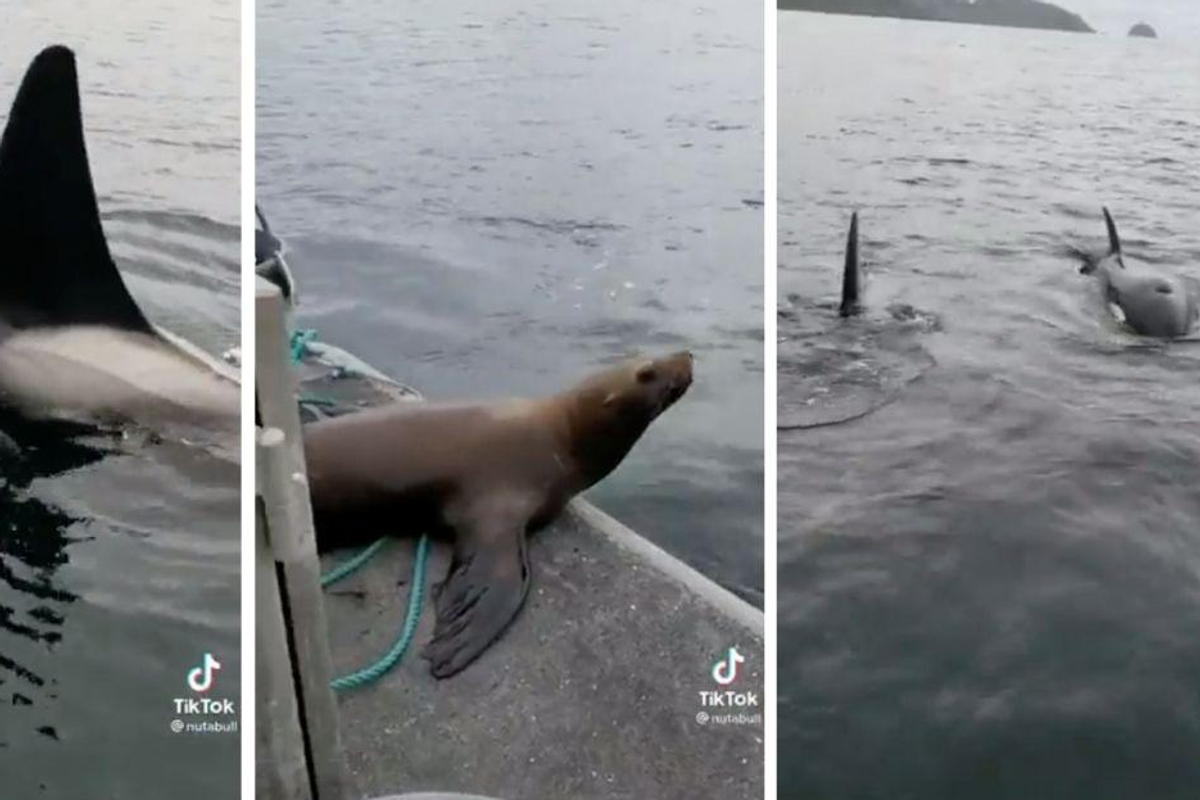A sea lion hopped on a woman's boat to escape a group of killer whales and the footage is wild
What would you do if you were in the boat?
A seal escaping a killer whale attack.
In the Pacific Northwest, orca sightings are a fairly common occurrence. Still, tourists and locals alike marvel when a pod of "sea pandas" swims by, whipping out their phones to capture some of nature's most beautiful and intelligent creatures in their natural habitat. While orcas aren't a threat to humans, there's a reason they're called "killer whales." To their prey, which includes just about everything that swims except humans, they are terrifying apex predators who hunt in packs and will even coordinate to attack whales several times their own size.
So if you're a human alone on a little platform boat, and a sea lion that a group of orcas was eyeing for lunch jumps onto your boat, you might feel a little wary. Especially when those orcas don't just swim on by, but surround you head-on.
Watch exactly that scenario play out (language warning, if you've got wee ones you don't want f-bombed):
Ummm, yeah. An orca sighting is one thing, but this is a whole other story. Orcas have been known to knock large prey off of icebergs, so the whole "orcas don't hurt humans" thing doesn't feel super reassuring in this scenario.
The footage came from TikTok user @nutabull, whose now-deleted account stated she was from Vancouver Island.
The viral video sparked a debate about whether the sea lion should be kicked off the boat or not. The woman kept telling the sea lion it "had to go" with a frank "Sorry, buddy, that's life," message, though she never actively tried to push it off. Many commenters joked about yeeting the sea lion off the boat to avoid a potentially disastrous encounter with the orcas. Others were on #teamsealion, saying they wouldn't have the heart to boot the poor thing.
It's a big philosophical question. The philosophical underpinnings of the belief that humans should stay out of the matters of wild animals, so as not to interrupt the delicate balance of nature, is called "relational non-interventionism." The philosophy holds that we have no general obligation to alleviate animal suffering, and that we typically do not have special obligations to ease the suffering of wild animals. Therefore, we generally do not have a duty to intervene in nature to ease the suffering of wild animals. That's one thing to believe, but who wants to see animals suffer?


